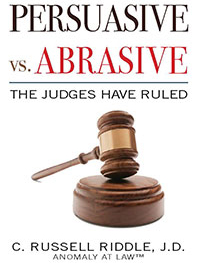Communication begins the moment you enter a room . . . before you utter a word. What are your “get-ups,” grooming and “get-alongs” announcing when you walk in?
* Do you want to be there?
* Are you confident?
* Are you outward focused or are you self-centered?
No need to answer . . . they already know (or at least they think they do).
Just ask Carly Simon:
You walked into the party
Like you were walking onto a yacht.
Your hat strategically dipped below one eye;
Your scarf it was apricot.
You had one eye in the mirror
As you watched yourself gavotte.
(Carly’s conclusion? – Vanity!)
The good news is that you have choices about the first impression you make.
“GET-UPS”: Careful selection of clothing, jewelry and other accessories is essential. Consider where you are going, with whom you are meeting and why. Then ask yourself, “What is appropriate?”
Remember that it is better to be over dressed than vice-versa.
Also ask yourself, “Will this _____ be distracting?” If the particular clothing or accessory will distract others (or you) from the primary purpose of the occasion, opt for something else.
Distractions include too much skin, ill-fitting clothes, noisy jewelry (e.g., clanking bracelets, etc.), “loud” colors / patterns and unsightly piercings.
GROOMING: Jim Carrey once said, “You know what I do almost every day? I wash. Personal hygiene is part of the package with me.” (Don’t you wish everyone followed his lead?)
One thing you can count on – Body odor, bad breath and disheveled hair will annoy others most every time. Ditto for excessive cologne or perfume.
“GET-ALONGS”: One of my favorite I Love Lucy episodes is the one in which Lucy dresses as the wicked city woman to scare Cousin Ernie (Tennessee Ernie Ford) into going home. – Ernie exclaims, “You got quite a hitch in your get-along!”
Outside of a sitcom, that’s not likely the message you want to send, nor is the Saturday Night Fever strut – “Well, you can tell by the way I use my walk, I’m a woman’s man: no time to talk.”
How we carry ourselves proclaims: confidence vs. arrogance; friendly vs. flirty; professional vs. amateurish; perhaps even morphing along the way. Take Mark Twain, for instance:
“There was a boyishness about Mr. Clemens sometimes that found different modes of expression. – Once, when the long corridor of the second floor of the hotel presented a temptingly empty avenue, he hopped, skipped, and ran, and then gave a delicious suggestion of a cakewalk. – As soon as a door opened, however, he stopped and assumed a supernaturally grave aspect.” – Elizabeth Wallace (Mark Twain and the Happy Island)
Everything about Mr. Twain was a statement. The same is true for you and me.
© 2012 Russ Riddle. All rights reserved.

